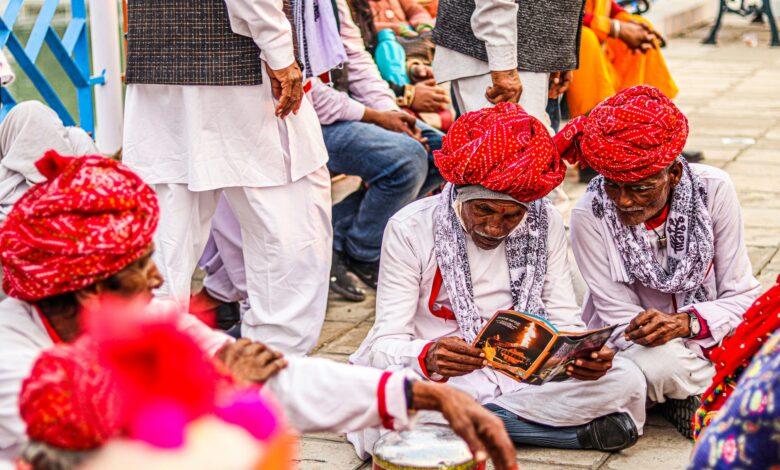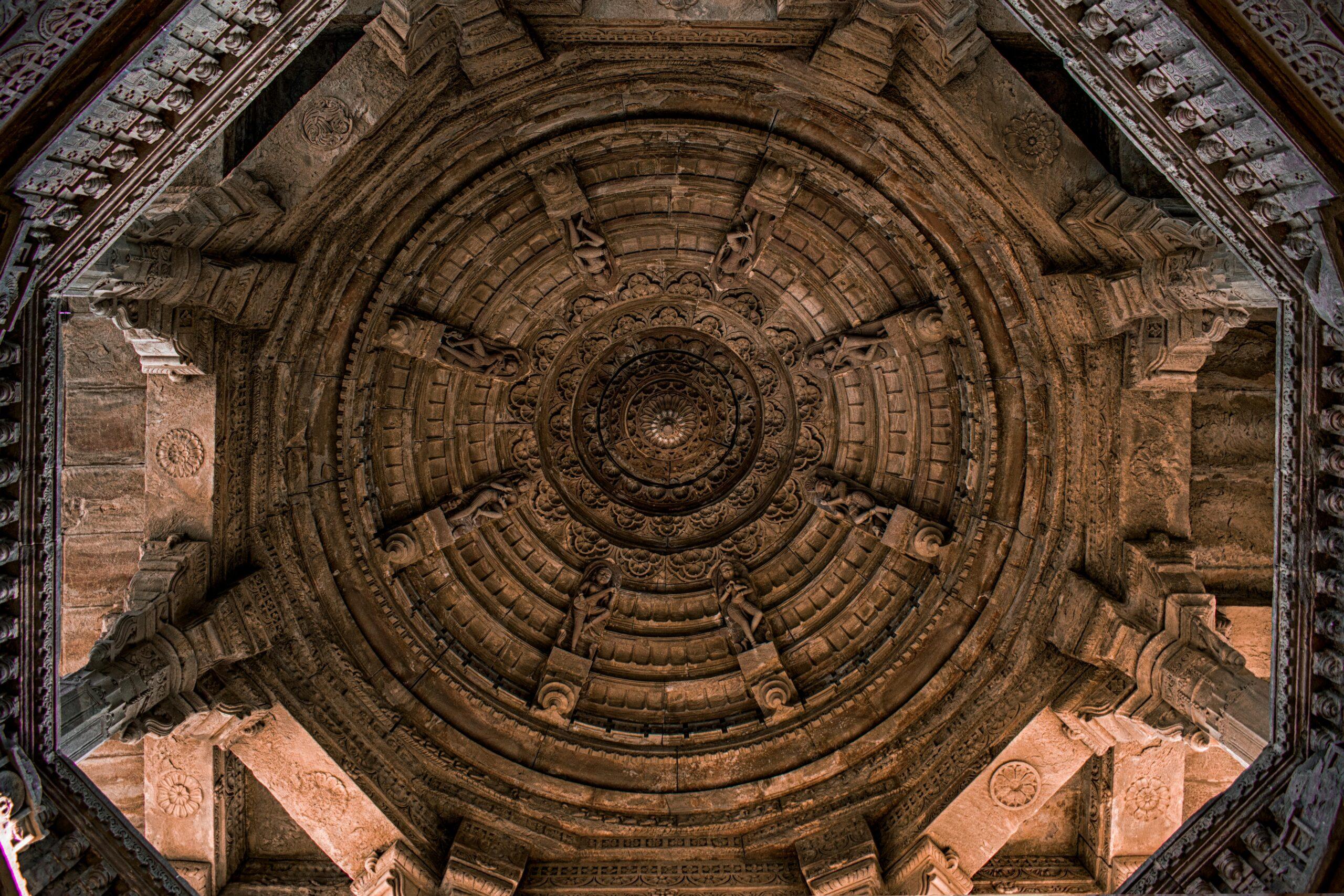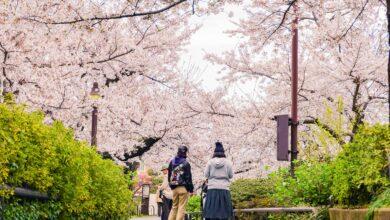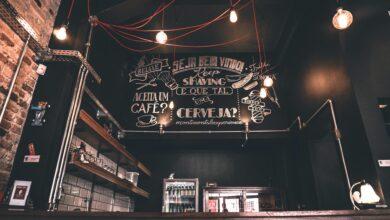Cultural Extravaganza: Festivals of Rajasthan 🎉🌟
Explore the Vibrant Celebrations and Traditions of Rajasthan's Festivals

Introduction
Step into the kaleidoscopic world of Rajasthan, where every festival is a vibrant tapestry woven with age-old traditions, colorful rituals, and boundless joy. In this land of kings and forts, festivals hold a special place, serving as a reflection of the rich cultural heritage that defines Rajasthan. Join us on a journey through the cultural extravaganza of Rajasthan’s festivals, where each celebration is a testament to the spirit and resilience of its people.
Diwali Celebrations in Rajasthan
Traditional Rituals:
Diwali, known as the Festival of Lights, is celebrated with great enthusiasm and fervor in Rajasthan. The celebrations in this vibrant state are deeply rooted in its rich cultural heritage. One of the traditional rituals observed during Diwali in Rajasthan is the lighting of diyas (earthen lamps) in and around homes and temples. This ritual symbolizes the victory of light over darkness and the triumph of good over evil. People clean and decorate their homes with colorful rangoli patterns and floral garlands to welcome the goddess Lakshmi, the Hindu deity of wealth and prosperity.
Cultural Significance:
Diwali holds immense significance in Rajasthan as it marks the return of Lord Rama to Ayodhya after defeating the demon king Ravana. The people of Rajasthan celebrate this occasion by reenacting scenes from the epic Ramayana through vibrant processions and folk performances. Additionally, Diwali is also associated with the worship of Goddess Lakshmi and Lord Ganesha, seeking their blessings for a prosperous year ahead. The exchange of gifts and sweets among friends and family members is another significant aspect of Diwali celebrations in Rajasthan, fostering a sense of unity and goodwill.
Unique Traditions:
Rajasthan adds its own unique flavor to the festivities of Diwali with distinctive traditions and customs. One such tradition is the lighting of firecrackers and fireworks, which illuminates the night sky with dazzling colors and patterns. Another notable tradition is the preparation of special delicacies such as ghewar, mawa kachori, and imarti, which are savored during Diwali gatherings and feasts. Additionally, Rajasthan is famous for its colorful markets and bazaars adorned with festive decorations, where people shop for traditional attire, jewelry, and decorative items to enhance the festive ambiance.
Community Celebrations:
In Rajasthan, Diwali is not just a family affair but also a community celebration that brings people together irrespective of caste, creed, or religion. Communities organize grand events and cultural programs featuring music, dance, and drama to commemorate the occasion. The streets and public spaces are adorned with vibrant lights and decorations, creating a mesmerizing spectacle for locals and tourists alike. Diwali in Rajasthan is not only a time for joy and merriment but also an opportunity to strengthen bonds and foster harmony among diverse communities.
Overview: Pushkar Camel Fair – Where Tradition Meets Spectacle
Pushkar Camel Fair stands as a vibrant tapestry where tradition seamlessly intertwines with modern spectacle, drawing visitors from around the globe. Nestled in the heart of Rajasthan, India, this annual event transcends mere commerce, evolving into a celebration of cultural heritage and rural life. Beyond its primary function as a livestock market, the fair offers a kaleidoscope of experiences, from cultural performances to thrilling competitions, making it a must-visit destination for travelers seeking an authentic glimpse into Rajasthan’s soul.
Camel Trading: The Heartbeat of the Fair
At the core of the Pushkar Camel Fair lies its bustling marketplace, where traders converge to buy and sell camels, horses, and other livestock. Against the backdrop of the desert horizon, a lively spectacle unfolds as thousands of camels, adorned in colorful attire, are paraded and showcased by their proud owners. The air is filled with the melodious sounds of bargaining and the pungent aroma of spices, creating an immersive sensory experience that harks back to ancient times when such gatherings were pivotal for sustaining nomadic livelihoods.
Cultural Extravaganza: A Showcase of Rajasthan’s Rich Heritage
Amidst the whirlwind of commerce, the Pushkar Camel Fair serves as a stage for Rajasthan’s vibrant cultural heritage to take center stage. Traditional music and dance performances, featuring captivating folk rhythms and intricate movements, transport spectators to a bygone era of Rajput valor and rural charm. From mesmerizing Kalbelia dances to soul-stirring performances by Manganiyar musicians, every corner of the fair resonates with the spirit of Rajasthan, fostering a deep appreciation for its timeless traditions.
Competitions and Events: Thrills and Entertainment for All
Beyond its role as a livestock market and cultural showcase, the Pushkar Camel Fair offers a diverse array of competitions and events that add an extra layer of excitement to the festivities. From camel races and beauty contests to turban tying competitions, visitors are treated to a spectacle of skill and agility, where both humans and animals vie for glory. These events not only entertain but also serve as a testament to the enduring spirit of competition and camaraderie that defines rural life in Rajasthan.
Cultural Significance: Preserving Heritage and Community Bonds
For Rajasthanis, the Pushkar Camel Fair is more than just a yearly event—it’s a living legacy that embodies the essence of their cultural identity. Rooted in centuries-old traditions of animal husbandry and trade, the fair serves as a crucial link between past and present, preserving ancestral knowledge and fostering community bonds that transcend generations. By participating in rituals and festivities passed down through the ages, locals reaffirm their connection to the land and each other, ensuring that the spirit of Rajasthan endures for years to come.
Gangaur Festival – Honoring Goddess Gauri
Description of Gangaur Festival:
The Gangaur Festival is a significant celebration in Rajasthan, India, dedicated to Goddess Gauri, an incarnation of Parvati, Lord Shiva’s consort. It is observed with great enthusiasm and fervor by both married and unmarried women, who pray for marital bliss, happiness, and the well-being of their spouses.
Rituals and Traditions:
During the festival, women adorn themselves in vibrant attire and intricate jewelry. They create clay idols of Gauri and Isar (Shiva) and decorate them with colorful clothes, jewelry, and flowers. These idols represent the divine union of the goddess with her consort. Women fast for the longevity and prosperity of their husbands, breaking their fast only after worshiping the idols and performing aarti in the evening.
Community Celebrations:
Communities across Rajasthan come together to celebrate Gangaur with processions, music, and dance. The streets are filled with the sound of traditional folk songs and the vibrant colors of women’s attire. In Jaipur, the capital city, a grand procession of beautifully adorned idols of Gauri and Isar winds its way through the streets, accompanied by musicians, dancers, and enthusiastic onlookers. The procession culminates at Talkatora or the Gangaur Ghat, where the idols are immersed in water amidst chanting and prayers.

Desert Festival – Celebrating Rajasthan’s Arid Beauty
Overview of the Desert Festival as a showcase of Rajasthan’s desert culture
The Desert Festival in Rajasthan stands as a vibrant celebration of the state’s rich desert culture, offering visitors a captivating glimpse into the traditions and heritage of this arid region. Held annually in the city of Jaisalmer, known as the “Golden City,” the festival spans three days of cultural extravaganza, drawing tourists from around the globe.
The festival serves as a homage to the harsh yet enchanting desert landscape of Rajasthan, with its sprawling sand dunes, majestic forts, and colorful attire. It showcases the resilience and creativity of the people who call this desert land home, highlighting their music, dance, art, and cuisine.
Amidst the backdrop of the Thar Desert, visitors are treated to a myriad of cultural performances, including traditional folk dances such as Ghoomar and Kalbelia, which mesmerize audiences with their rhythmic movements and vibrant costumes. These performances offer insights into the lives and traditions of the desert communities, passed down through generations.
The Desert Festival also serves as a platform for local artisans to display their craftsmanship, with stalls brimming with intricately designed handicrafts, textiles, and jewelry. Visitors can witness skilled artisans at work, creating exquisite pieces using techniques that have been preserved for centuries.
As the sun sets over the desert horizon, the festivities continue with mesmerizing musical performances under the starlit sky. Renowned musicians showcase traditional Rajasthani instruments such as the dholak, sarangi, and kamayacha, filling the air with melodies that evoke the spirit of the desert.
Description of events such as camel races, folk music, and dance performances
One of the most anticipated events of the Desert Festival is the thrilling camel races, where decorated camels adorned with vibrant attire race across the golden sands amidst cheers and applause. These races not only showcase the agility and strength of these desert creatures but also add a sense of excitement to the festival atmosphere.
In addition to camel races, visitors can immerse themselves in the soul-stirring melodies of Rajasthani folk music, performed live by talented musicians. The haunting tunes of the desert echo through the festival grounds, transporting listeners to a bygone era of kings and queens.
Dance performances are another highlight of the festival, with skilled artists enthralling audiences with their graceful movements and colorful costumes. From the swirling skirts of the Ghoomar to the energetic beats of the Kalbelia, each dance form tells a story of love, valor, and tradition, captivating spectators of all ages.
Highlighting the unique attractions of the Desert Festival for tourists
For tourists seeking an authentic cultural experience, the Desert Festival offers a unique opportunity to witness Rajasthan’s vibrant desert culture up close. From exploring bustling bazaars filled with local crafts to savoring traditional Rajasthani cuisine under the open sky, the festival immerses visitors in the sights, sounds, and flavors of the desert.
Photography enthusiasts will find ample opportunities to capture the stunning landscapes and vibrant festivities, from the golden hues of the sand dunes to the kaleidoscope of colors adorning the festival grounds. Whether riding a camel through the desert or trying their hand at traditional folk dances, visitors are sure to create lasting memories at this one-of-a-kind cultural extravaganza.
FAQs
Q. What are some famous festivals celebrated in Rajasthan?
A. Rajasthan is renowned for its vibrant and colorful festivals. Some of the most famous festivals celebrated in the state include:
Q. Can you tell me about the Pushkar Camel Fair?
A. The Pushkar Camel Fair is one of the most famous festivals in Rajasthan. It is held annually in the town of Pushkar, usually in November. The fair is a vibrant spectacle featuring camel trading, cultural performances, music, and various competitions.
Q. When is the Desert Festival celebrated in Rajasthan?
A. The Desert Festival is usually celebrated in the month of February, in the city of Jaisalmer. It is a three-day event showcasing the rich culture and traditions of Rajasthan, including camel races, folk dances, music performances, and more.
Q. What is the significance of the Gangaur Festival?
A. The Gangaur Festival is celebrated predominantly by women in Rajasthan to honor the goddess Gauri, who represents marital happiness. It usually falls in March or April and involves elaborate rituals, processions, and prayers for the well-being of one’s spouse.
Q. Can you provide some details about the Teej Festival?
A. Teej is a significant festival celebrated by women in Rajasthan, usually in July or August. It marks the onset of the monsoon season and is dedicated to the goddess Parvati. Women dress in colorful attire, fast, and participate in various cultural activities and rituals during this festival.
Q. What happens during the Marwar Festival?
A. The Marwar Festival is held annually in the city of Jodhpur, usually in October. It is a celebration of the bravery and valor of Rajasthan’s rulers. The festival features folk music and dance performances, camel tattoo shows, horse polo, and other cultural events.
Q. When is the Elephant Festival celebrated in Rajasthan?
A. The Elephant Festival is usually celebrated on the day of Holi, the festival of colors, in March. It takes place in the city of Jaipur and includes a procession of decorated elephants, elephant polo matches, and various cultural performances.
Q. What can visitors expect during the Mewar Festival?
A. The Mewar Festival is celebrated in Udaipur, usually in March or April, to welcome the arrival of spring. It involves colorful processions, cultural performances, and rituals dedicated to the goddess Parvati and Lord Shiva. Visitors can witness folk music, dance, and traditional ceremonies during this festival.
Conclusion
As we bid farewell to the whirlwind of colors, music, and festivities that define Rajasthan’s cultural tapestry, we carry with us the indelible memories of a land where every moment is a celebration. From the dazzling lights of Diwali to the bustling energy of the Pushkar Camel Fair, and from the solemn rituals of Gangaur to the vibrant spectacles of the Desert Festival, Rajasthan’s festivals offer a glimpse into the soul of this enchanting region. In the rhythm of folk music and the swirl of vibrant attire, we find the essence of Rajasthan – a timeless saga of tradition, resilience, and boundless hospitality.
UP NEXT
https://touristeyes.com/health-warning-for-travelers/





Facebook Comments